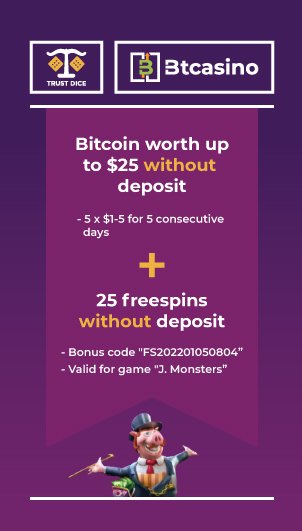What Are Cryptocurrencies?
Everyone has probably heard of Bitcoin by now. Similar to Tempo for the handkerchief, Dixo for the adhesive strip or O.B. for the tampon, the brand has become synonymous with its actual use. Bitcoin, the well-known cryptocurrency, is on everyone's lips. But what exactly are cryptocurrencies?
In general, cryptocurrencies are like any other currency, for example, euro or dollar (so-called fiat money). You can trade them or exchange them for goods. So far, so simple. The difference with conventional currencies: Crypro currencies are digital. That means there is no paper money equivalent to them and - now this is the interesting thing - they are completely outside the control of governments or financial institutions. They are backed by a decentralized payment system, with the technical implementation happening via blockchain. More on this below.
The goal of cryptocurrencies is to enable its users to make cashless payments. Moreover, cryptocurrencies are speculative objects in themselves, meaning that you can earn money by investing in cryptocurrencies such as Bitcoin or Ethereum.
How do cryptocurrencies work?
Cybercurrency is based on the concept of cryptography, which means the encryption of information. Hence, the name “crypto”. Whereas with traditional currencies, you have to rely on a so-called “trusted third party”, i.e., a bank (and pay a service fee to make the transfer), this also ensures that exactly the amount you want to transfer arrives at the recipient. So if you would like to make a person-to-person digital transfer, you also want to be sure that the correct amount will arrive and also that it can't be increased or decreased afterward. This is where cryptocurrencies rely on blockchain technology.
How does the blockchain work?
In blockchain technology, there are non-reversible encryption functions, so-called hashes. Each time an action, such as a transaction, is performed, a new block is created with its hash and appended to all existing blocks, as in a chain. Hence, the name blockchain. The great thing about this is that all the data on owners and movements of the currency are stored on thousands of servers simultaneously, encrypted. Thus, every single transaction is stored decentrally and forgery-proof in a network.
How do I buy cryptocurrencies?
Now that they are digital, these currencies are sold or traded on the Internet, depending on the currency. In fact, there are more cryptocurrencies than just Bitcoin, many more. As of June 2021, over 10,000 different recognized digital currencies have been counted. Their value depends on various factors, but a central component is supply and demand.
On the one hand, you can buy digital currencies via your crypto exchanges. There you simply exchange “conventional money”, for example euros, against a cryptocurrency. Moreover, only fractions of cryptocurrencies can be exchanged. If you look at Bitcoin, you also quickly understand why. Currently, (as of 02/12/2021), 1 Bitcoin is worth over 50,000 euros.
To trade and pay with cryptocurrencies, you need the following:
- Step 1: You first need a wallet, i.e., a virtual wallet. The tokens (= assets of the cryptocurrency) are acquired and traded via this wallet. You also make your payments via this wallet. There are many providers for wallets on the market. As a beginner, we recommend an online wallet app that you can download for free. You can read more about the different types of wallets below in the FAQs.
- Step 2: Find a suitable trading platform or crypto exchange. As a rule, large and well-known platforms are preferable to smaller and unknown ones. In Austria, for example, there is the well-known platform Bitpanda.
- Step 3: Create an account on the platform of your choice.
- Step 4: Deposit funds. How you can deposit money depends, of course, on the selected platform. As a rule, however, the payment methods commonly used in e-commerce (credit card, PayPal, etc.) apply.
- Step 5: Now you can buy the cryptocurrency of your choice or rather invest in it. After all, digital means of payment are also objects of speculation.
Now, you would like to buy something with your cryptocurrency. Only where, now the question arises.
Which companies accept cryptocurrencies?
It depends on the currency, of course. But common cryptocurrencies like Bitcoin or Ethereum are accepted by a long list of merchants, which is extended every day. There are even providers that exclusively welcome Bitcoin as a means of payment.
Some well-known companies that accept cryptocurrencies:
- Microsoft
- Tesla
- WordPress
- Lieferando
- Steam
- Rakuten.de
- Expedia
- CheapAir
- OKCupid
- Subway
How does payment with cryptocurrency work?
Generally, payment with Bitcoin and Co. works as follows: Either a Bitcoin address is provided by the store or it is sent to you via email, in which case you have to manually add the address to your wallet. In other stores, the wallet opens automatically by a button. In this case, the payment address is also inserted automatically. There is also still the possibility to pay with a QR code that connects to the Wallet. In physical stores, hotels or restaurants where you can pay with cryptocurrency, it often works via QR codes as well.
Which wallet should I choose?
Before you get a wallet, think about how you want to use it. Would you rather have a safe or a wallet? Roughly speaking, there are three different types of wallets. They differ in their usability and in their security.
Online wallet:
- Best suited for beginners
- You can easily manage your cryptocurrencies with your cell phone
- Quick and easy access to your cryptocurrencies
| Advantages | Disadvantages |
|---|---|
| Free of charge | Less secure than hardware wallets |
| Wallet can always be carried with you | Is stored on foreign servers |
Software wallet and desktop wallet:
- Suitable for beginners and advanced
- Are managed on the computer/laptop
| Advantages | Disadvantages |
|---|---|
| Free of charge | Less secure than a hardware wallet |
| You have the key for your wallet in your own hand | Defective terminal device can lead to problems during recovery |
| Works without additional hardware | Uses a lot of storage space when matched with the blockchain |
Hardware wallet:
- Suitable for connoisseurs and people and for long-term investment
- You have the key for your wallet in your hand
- Are stored on an external storage device
| Advantages | Disadvantages |
|---|---|
| Safest way to store cryptocurrencies | Fast transfer is troublesome |
| No running costs | Costs arise with the acquisition |
| Can be easily lost |
Which cryptocurrencies should I buy?
Which cryptocurrency you should choose depends on your needs and your risk tolerance. If you want to be on the safe side, it is best to invest in already established cryptocurrencies like Bitcoin or Ethereum. However, you can also put your money on cryptocurrencies that are promising but not yet as established, like Dogecoin or Shiba Inu. The risk with lesser-known currencies is higher, but the profit margin is usually higher as well. Just like real currencies, cryptocurrencies are subject to fluctuations and ultimately the decision is a very personal one. Therefore, it would be nonsensical to give a direct recommendation for a currency. However, here you have a small guideline that you should follow:
1) Research, research, and research. See what's happening in the cryptocurrency market right now, follow insiders on their social media channels, and watch YouTube tutorials.
2) If you have done enough research, then choose a cryptocurrency.
3) What speaks for this currency, what speaks against it? What risk do you take with which investment, and what could you gain?
4) Find an established crypto exchange, a trusted broker (e.g., Bitpanda) or invest directly.
Where do I store my cryptocurrencies?
Clearly, gold bullion is best kept in a safe or safe deposit box. But what do you do with cryptocurrencies? You need to protect them from theft and cyberattacks in the same way. You should take the following security measures in any case:
- Question your user behavior. Do not blindly trust every page, source and tool. Over time, you will develop a sense for it, but it is always advisable to research carefully.
- Regular updates are the be-all and end-all. Software updates are so important because they usually close security gaps. Therefore, do not postpone the update to another time, but do it immediately if possible.
- Do not make transactions on public networks. The Starbucks or McDonald's WLAN is NOT a secure network! More and more crypto thieves have specialized in emptying wallets via insecure networks.
- Use a password manager and do not write down any password, not even in emails or in secured chats!
- It's best to protect your wallet with 2-factor authentication, for example with an app on your phone.
- No backup, no sympathy. To further spread the risk, it's best to create multiple backups on multiple devices.
- Split your cryptocurrencies. Secure one part in a hardware wallet, while you can trade with the other part on a trading platform.
Conclusion
As you can see, it's not as complicated as it might seem at first. Nevertheless, we recommend acquiring basic knowledge of Bitcoin and Co. before you blithely get started. Because, as Warren Buffett so aptly put it? Don't invest in anything you don't understand.

